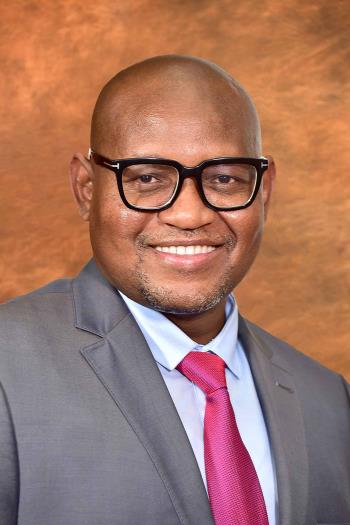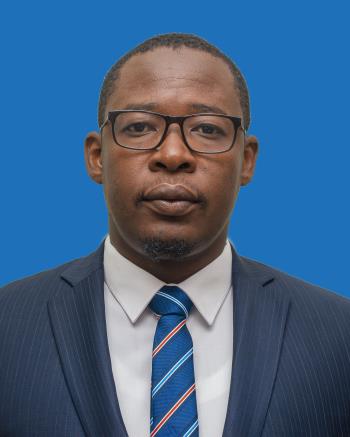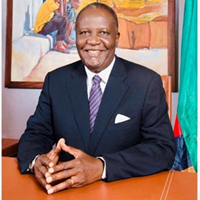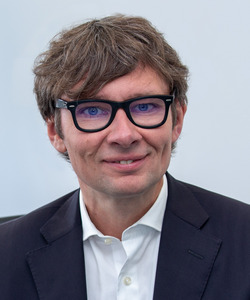AI-powered Open Educational Resources (OER) for ambitious and transformative action to achieve gender equality and quality education
Slovenia
Session 188
Over the past decade, the world has seen significant developments in reaching the 2030 Agenda and ensuring inclusive and equitable quality education (SDG4) and achieving gender equality and empowerment of all women and girls (SDG5). The world has seen a major role that a responsible use of human-centric and human rights-based information and communication technologies (ICT), including artificial intelligence, play in this endeavour.
Ahead of the upcoming 2023 SDG Summit that will be convened in September 2023 during the United Nations General Assembly in New York in order to follow-up and review the implementation of the 2030 Agenda, this WSIS Forum event will zoom in on the use of information and communication technologies, including artificial intelligence to achieve the Sustainable Development Goals 4 and 5.
How can we ensure inclusive and equitable quality education for all with the support of the ICT? How to strengthen digital literacy and skills for women and girls? How can AI solutions support the no-cost access, re-use, re-purpose, adaptation and redistribution of educational open educational resources?
The event will serve as a platform to share concrete examples of the use of Open Educational Resources to empower women in girls, increase access to quality education and build partnerships to boost AI for sustainable development.

Dr Emilija Stojmenova Duh completed her undergraduate and postgraduate studies at the Faculty of Electrical Engineering, Computer Science and Informatics of the University of Maribor. In the past, she managed the 4PDIH Digital Innovation Hub – a partnership between the Faculty of Electrical Engineering and the Association of Municipalities of Slovenia that raises awareness of the importance of digitalization, provides support in the development of digital knowledge and skills, and helps decision-makers design appropriate digitalization policies. Her work in research and development focused on the use of new digital technologies for innovation and the development of smart cities and communities, digital innovation hubs, rural development and digital transformation. She is strongly committed to increasing the number of young people studying engineering – especially women and to reducing the digital divide in the society. She is author and co-author of a number of scientific and professional publications concerning digital transformation.

Mohlopi Phillemon "Philly" Mapulane is the Deputy Minister of Communications and Digital Technologies in South Africa. “Philly” Mapulane is a graduate with a National Diploma in Public Management and Administration and a B-Tech Degree in Public Administration from Technikon South Africa, now incorporated into the University of South Africa. He studied and has obtained a Certificate Programme in Management Development from the University of the Witwatersrand. He is pursuing a Masters Degree in Public Administration (MPA) from the University of Pretoria. "Philly" Mapulane is a seasoned local government practitioner who spent 14 years in local government management and administration. Ten (10) of those years, he occupied senior management positions ranging from project coordinator, which sought to subsidise Indigent households on their municipal accounts. In 2001 he was promoted to Head of the Department of Local Economic Development and Tourism. He served in this position for two years. In February 2003, he was appointed as the Manager: Support Services (Chief Operating Officer). In January 2007, he was appointed as the Municipal Manager. One of the highlights of his career in local government was his participation in a three (3) months International Leadership Exchange Programme between the Institute of Local Government Management of South Africa (iLGM) (a professional institute of Municipal Managers) and the Society for Local Authority Chief Executives (SOLACE), which is a professional institute of Chief Executives of local authorities in the United Kingdom..



Tomas Lamanauskas took office as ITU's Deputy Secretary-General on 1 January 2023. In this key elected role, he assists with organizational management and fosters close collaboration across ITU's radiocommunication, standardization, and development activities. Mr Lamanauskas aims to forge impact-driven partnerships, help the industry cut emissions, and implement results-oriented management to ready ITU for a dynamic future.
.jpg?maxwidth=500)
Ambassador Anita Pipan is member of the Slovenian Foreign Service since 1994. She served at the Permanent Mission of the Republic of Slovenia to the United Nations in New York and Slovenian Embassy in Buenos Aires, advised the Minister of Foreign Affairs on the EU affairs and bilateral issues and was the Director-General of the Directorate for Policy Planning and Multilateral Political Relations. Ms Pipan served as Ambassador to the Kingdom of Belgium from March 2009 till January 2013, with non-resident accreditations to the Grand Duchy of Luxembourg, to the Republic of Cabo Verde, to Jamaica, as well as the African Union. Ms. Pipan served as Slovenian Ambassador to the Hellenic Republic between October 2015 and July 2019 and was a non-resident ambassador to the Republic of Cyprus. From August till December 2019 Ms. Pipan was national coordinator for the OECD at the MFA. Between December 2019 and March 2020 Ms. Pipan was Acting Director General of the Directorate for Common Foreign and Security Policy. Before coming to Geneva she was Director General for Multilateral Affairs and Development Cooperation between April 2020 and June 2021.
.jpg?maxwidth=500)
John Shawe-Taylor is UNESCO Chair for Artificial Intelligence at UCL, Director of the International Research Center Artificial Intelligence (IRCAI). He has contributed to a number of fields ranging from mathematics of graph theory through cryptography to statistical learning theory and its applications. His main contributions have been the developing of principled analysis of machine learning and the coordination of European Networks of excellence that were influential in promoting the uptake of machine learning and AI in both research and commercial application.

Swiss Daniel Miodovnik is on the Forbes list "30 under 30 for Europe". He cofounded Orbital Materials, creating transformational AI foundation models for Materials Design. Previously he was a Director at Social Finance and cofounded Digital Labs to harness big data to aid governments in providing better, more personalized services to their most vulnerable citizens. They deployed open source digital models to created insights for government services addressing domestic abuse, underemployment, crime and more. Daniel has previously worked at The Reinvestment Fund as a Research Analyst, and attended the University of Oxford.
-
 C1. The role of governments and all stakeholders in the promotion of ICTs for development
C1. The role of governments and all stakeholders in the promotion of ICTs for development
-
 C3. Access to information and knowledge
C3. Access to information and knowledge
-
 C4. Capacity building
C4. Capacity building
-
 C8. Cultural diversity and identity, linguistic diversity and local content
C8. Cultural diversity and identity, linguistic diversity and local content
-
 C11. International and regional cooperation
C11. International and regional cooperation
-
 Goal 4: Ensure inclusive and equitable quality education and promote lifelong learning opportunities for all
Goal 4: Ensure inclusive and equitable quality education and promote lifelong learning opportunities for all
-
 Goal 5: Achieve gender equality and empower all women and girls
Goal 5: Achieve gender equality and empower all women and girls
-
 Goal 10: Reduce inequality within and among countries
Goal 10: Reduce inequality within and among countries
-
 Goal 17: Revitalize the global partnership for sustainable development
Goal 17: Revitalize the global partnership for sustainable development